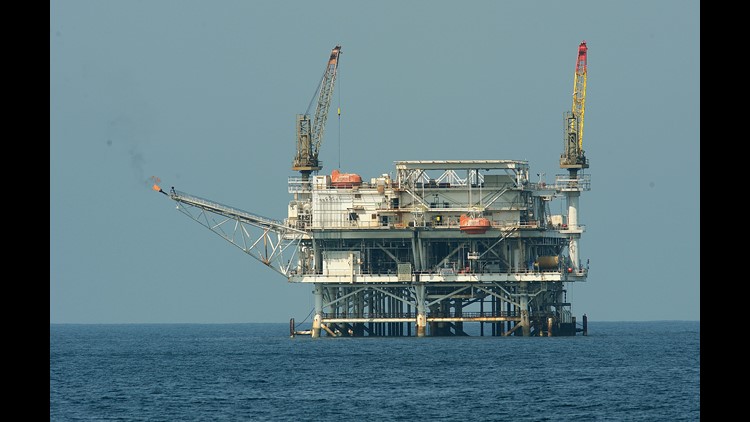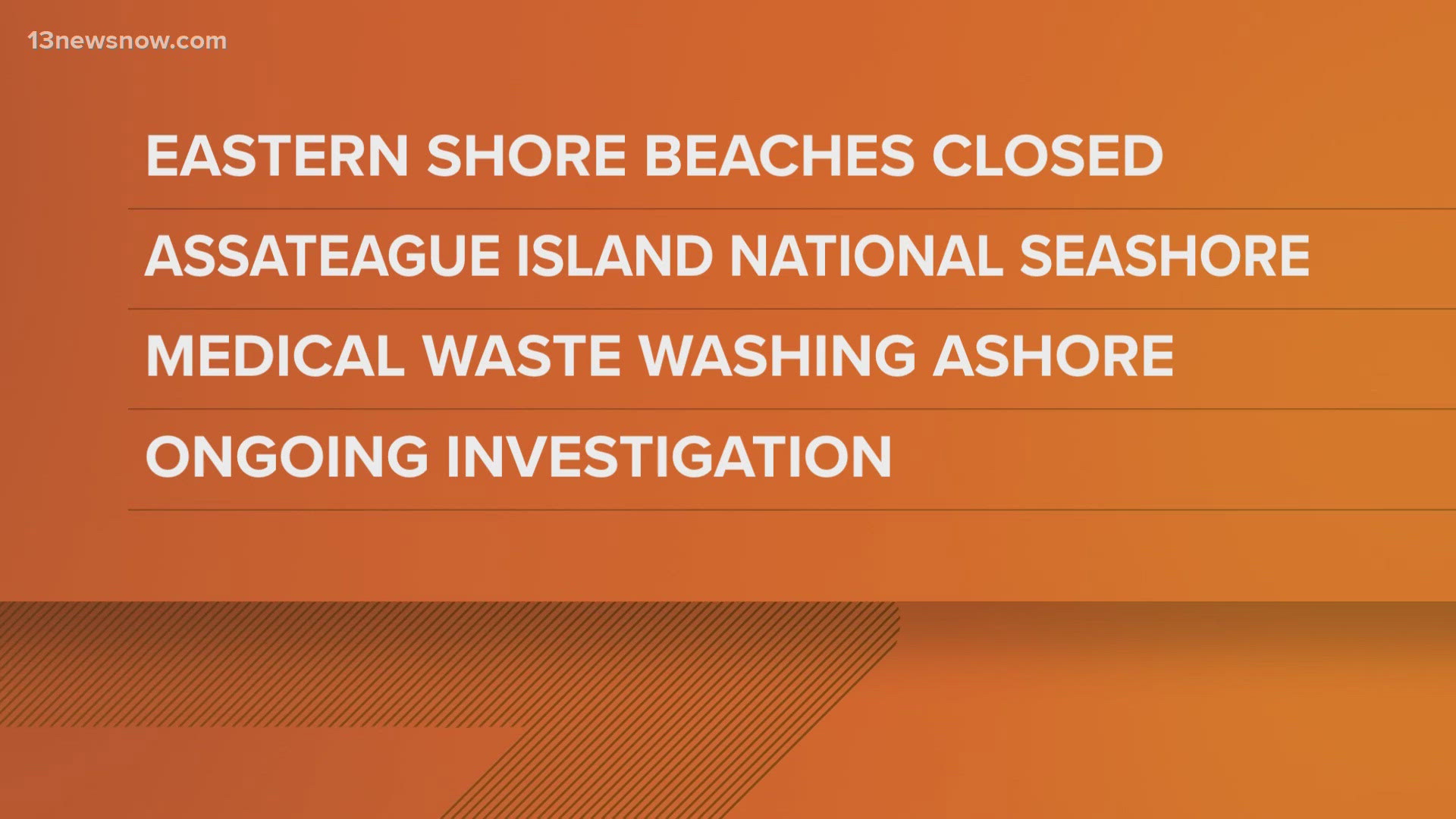WALLOPS ISLAND, Va. (Delmarva Now) -- A Trump administration proposal to open virtually all U.S. coastal waters to oil and gas exploration is encountering deep resistance in many Atlantic states, including Maryland and Virginia.
Under the five-year plan, the federal government would begin selling leases in 2020 in the Mid-Atlantic, an area extending from Delaware Bay south to the North Carolina-South Carolina border. One sale would take place that year followed by one sale each in 2022 and 2024.
Drilling would be allowed as close as 3 miles offshore, a prospect some in the region described as a nightmare scenario.
"Expanding offshore drilling unnecessarily jeopardizes our economy, environment, national security, and the health and safety of our residents," said Virginia Gov.-elect and Eastern Shore native Ralph Northam. "All it takes is one exploration gone wrong to do immeasurable harm to major economic drivers including tourism, fishing, aquaculture and our military installations."
Democrats such as Northam were quick to condemn the move. But opposition also sprang from within Trump's own party.
Maryland Gov. Larry Hogan, a Republican, sent the state's Democratic attorney general, Brian Frosh, a letter Jan. 4 directing him to investigate the U.S. Interior Department's plan, which was announced earlier in the day.
Hogan called for “any viable legal claims, actions or suits against the U.S. government to prevent” offshore drilling in Maryland's coastal waters.
To the south, U.S. Rep. Scott Taylor, the Republican who represents the Eastern Shore of Virginia and Virginia Beach, told The Washington Post on Monday he opposes the plan. Offshore drilling is opposed by coastal communities and industries in his district, and could interfere with military training, he said.
His fellow Republican on Maryland's portion of the Shore has come out in favor of exploration and drilling — under two conditions. Rep. Andy Harris, through a spokeswoman, said it must be done in an "environmentally safe manner," and any rigs must not be visible from Maryland's shoreline.
While it is technically possible that rigs could be built 3 miles from the shore, it is highly unlikely they would rise so close to Maryland and Virginia's coast, according to petroleum industry experts. The Outer Continental Shelf, where drilling would likely occur, lies more than 50 miles offshore.
The Trump administration's action comes less than two years after the Obama administration nixed its own plan to open up drilling sites 50 miles off Virginia, North and South Carolina and Georgia by 2021.
The decision came after scores of coastal communities along the Atlantic, including Delaware and Maryland, formally protested the move.
U.S. Interior Secretary Ryan Zinke said the revised National Outer Continental Shelf Oil and Gas Leasing Program will offer the largest number of lease sales ever proposed and put America on the path toward energy independence.
“This is a start on looking at American energy dominance and looking at our offshore assets and the beginning of a dialogue of when, how, where and how fast those offshore assets should be or could be developed,” Zinke said. “This is a clear difference between energy weakness and energy dominance.”

The plan includes 25 of 26 available planning areas in the U.S., with 47 potential lease sales. The only planning area excluded in the new plan is the North Aleutian Basin in Alaska.
Zinke said the proposal is in its early stages and will be followed by a 60-day public comment period. The U.S. Bureau of Ocean Energy Management has scheduled several public hearings on the leasing plan, including separate meetings next week in Annapolis, Dover and Richmond.
Virginia's oil and gas industry is applauding the renewed study of the state's waters, saying the Mid-Atlantic outer continental shelf could produce up to 2.4 billion barrels of oil and 24 trillion cubic feet of natural gas.
"These resources could help keep energy costs low and benefit our commonwealth for decades to come," said Virginia Petroleum Council Executive Director Miles Morin.
Environmental groups along the Shore are reassembling the lobbying machines they used to defeat the Obama-era proposal. Plans included online letter-writing campaigns and shuttling activists to the government's public hearings.
“Oil doesn't have a whole lot of respect for state lines, so there's bound to be impact to our coastal waters even if drilling weren't to take place off the Delmarva coast," said Matt Heim, outreach director for the Assateague Coastal Trust. "Even a small spill could end up off Assateague, Ocean City, Fenwick (Island), any of our beaches.”
Virginia Eastern Shorekeeper Jay Ford warned that, among other consequences, the placement of oil rigs off Virginia's coast could impede future activity at NASA's Wallops Flight Facility. The space center could lose its competitive edge in the high-stakes world of government and private contracts, he said.
Any exploration or drilling could pose a threat to ocean-dependent tourism, the Bureau of Ocean Energy Management acknowledges in its report. In Virginia, that industry is worth $2.9 billion; in Maryland, $2.5 billion.
Denny Riordan, owner of the Assateague Island Surf Shop, dreads the idea of oil rigs cropping up in his view of the ocean. About the only thing he fears more is the sight of spilled oil.
"God forbid if anything happened, they could just ruin the beaches here," he said. "If you can't get in (the ocean), people are going to go elsewhere.”
Oil-drilling structures could be a boon to one segment of Ocean City tourism industry. The pilings would almost certainly became a haven for fish and, by extension, recreational fishermen, said Jeremy Blunt, a commercial chart boat captain based in the resort.
“Drill here, drill now. I'm all for it," he said.
Blunt has a blunt message for the industry's critics: Oil is already present on Delmarva's coast. Instead of being drilled, it is being ferried in tankers heading up the shore toward Delaware Bay.
The rigs would be well offshore anyway, he added.
“You won't even know what's going on," Blunt said.
The Associated Press and the Wilmington News Journal contributed to this report.



